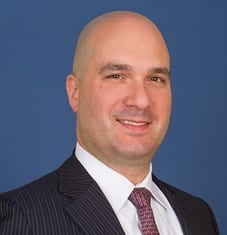Everyone seems to focus on manufacturing and construction when it comes to employee safety. But employee safety affects all employers, even those in offices or other seemingly safe places.
But as you probably know, safety is relevant to every industry. When we asked 428 employers what aspects of safety were most challenging. 58% of surveyed employers said awareness, prevention, training, or responding to hazards were challenges. Additionally, all industries represented in the survey voiced at least one challenge.
Of course, not every client will be as aware. When talking with any of your insureds about occupational safety measures, here are four points to bring up:
General Duty Clause
First, there’s the law. OSHA requires almost all employers to provide a workplace free from recognized hazards that may cause death or serious harm to employees. OSHA has consistently cited employers for general duty violations throughout the years.
But OSHA is just a place to start. These regulations are not an arbitrary benchmark. They are the minimum standards for safety, not an arbitrary benchmark. Your clients should be viewing OSHA’s standards as a place to start, rather than a place to stop. That makes for a safer workplace and a stronger defense during litigation.
Injuries Happen In All Industries
Second, injuries and illnesses happen in all industries. The most recent government data shows that every industry reported a nonfatal injury or illness in 2020 that involved employees missing days from work. And remember this was during the pandemic where a hefty portion of the workforce was working from home.
Prevalence of Injuries and Illness
Third, there are a couple types of injuries and illnesses that are particularly relevant right now.
- COVID-19, where despite the current dip in infection rates across the country, employers face still being cited for violations. OSHA is in the process of making a COVID-19-specific regulation.
- Overexertion is the most common nonfatal injury in workplaces. Not only can overexertion injure employees who lift or transport heavy objects, but also desk-bound employees with poor ergonomic setups.
It Can Get Messy
Of course, not all industries have the same amount of risk. But employee safety affects all employers. State workers compensation laws, potential disability accommodations, temporary staffing, and insurance premium hikes aren’t isolated to high-risk jobs. Injuries and illnesses can create legal and financial headaches for employers when they arise, regardless of likelihood.
How to Support
Small businesses typically don’t have the resources to manage human resources, compliance, and health and safety all on their own. Benefits brokers can help clients to reevaluate short-term and long-term disability plans in addition to health coverage.
Property and casualty brokers can help clients become aware of and prevent potential hazards in their workplaces as well as better understand what their insurance covers in the case of illness or injury.
But here’s the most compelling for broker partners of both disciplines: providing HR and compliance solutions, which often include health and safety measures, to their clients.
Why HR Should Be Doing EHS
As we’ve said, employee safety affects all employers. Here are six reasons that human resources folks should be handling occupational health and safety issues at your organization.
- It‘s complicated. For example, intersection of injuries and disability accommodations, leave/disability benefits.
- You’re the boss. OSHA inspectors will go to the office manager or HR to conduct audits. They will have to demonstrate an understanding of OSHA regulations and standards when walking with the inspector.
- Lack of safety resources. You might be surprised that very small businesses, such as subcontractors and manufacturing depots, may not have a formal safety program in place.
- Policies. HR is the primary enforcer of handbook policies. HR is in the best place to administer safety policies and guide managers appropriately. Some industries are required to have IIPPs and train on them (similar to WHP policies and training).
- They care about employees. Despite being overwhelmed with duties year after year, what doesn’t change is the overall dedication to keeping employees safe and happy.
- We know. It’s one more thing to do. But that’s why Paul Donas, LLC will be glad to help!
Credits: TrustMineral.com


